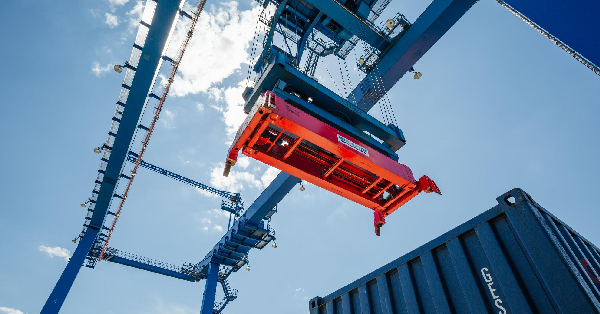The Delo Group considers the creation of a unified digital logistics platform in Russia to be a necessary element of unified cyber communication standards in all customer-operator-state interaction chains. Maxim Filimonov, Vice President of Delo Management Company, said this, speaking at the panel session “Digital Tools for New Logistics”, within the annual “Transport Week-2022” Forum. Maxim Filimonov noted the digitalization in the logistics industry today is in a development process, but the numerous digital services of government agencies and state-owned companies, as well as private operators, are fragmented. This makes the customer service accessible and convenient, but it does not solve the main issue – uniting the various platforms into a single national system. On the way to this task is currently extremely difficult to overcome – to bring all these innovations to a unified cyber communication standard system. Other important and complex issues come next, such as how and where to store the consolidated data banks. “Creating a unified digital platform is a very difficult and extremely expensive task. That is why the state and business must invest together. No doubt, there are such investments today, but looking at the digitalization of processes, you begin to think that some of them are not used quite optimally – so many unresolved problems in this sphere,” he said.
According to Filimonov, logistics as a business process consists of many operations and interactions between transportation participants, and many of these operations are still carried out using papers. Digitization of these operations is a huge reserve for increasing the transport industry’s efficiency. The digital logistics platform will provide an alternative to traditional paperwork in the field and speed up regulatory procedures for cargo movement, increasing transparency for GIAs (government inspection authorities), he added.
Speaking about the practical implementation of digitalization ideas in the Group’s activities, Maxim Filimonov highlighted the successful testing of the digital identification seals project for the control of arriving vehicles on the new ferry service between Turkish ports and Novorossiysk (planned to be launched by the end of the year).
According to Maxim Filimonov, this ferry service was created on the Turkish partners’ initiative to increase the intensity and volume of cargo flows between Russia and Turkey. Its key feature is a storage area for arriving/departing vehicles remote from the port, providing customs and other state control procedures.
“It was impossible to control the movement of such a number of vehicles from the port to the storage yard and back. Their shipload can reach 70-100 units. However, a solution was found – the digital identification seals gives a guarantee of a vehicle movement control on the route and the safety of its semi-trailer. The use of such devices was introduced in the regulatory framework by the corresponding normative legal instruments. The customs authorities have permanent access to the control means. We have signed all the necessary agreements with the digital seal operator, tested them successfully, and now we are ready to start using them. Successful testing of the identification seals gives us confidence to say that we are ready to start using them. It is worth mentioning that one seal takes an average of 70 seconds to apply and remove. This is an indispensable digital component for a project like this implemented based on our DeloPorts and RUSCON assets in Novorossiysk,” said Maxim Filimonov.






































